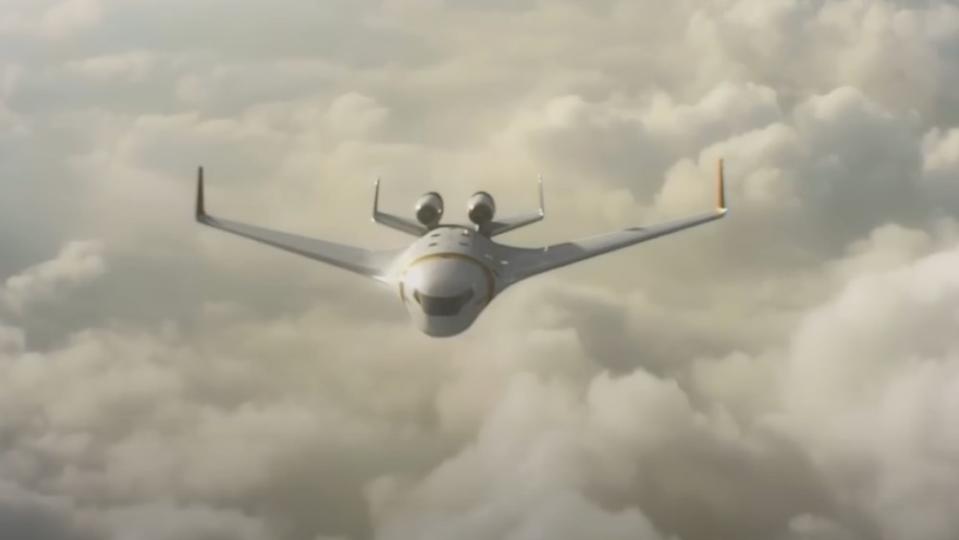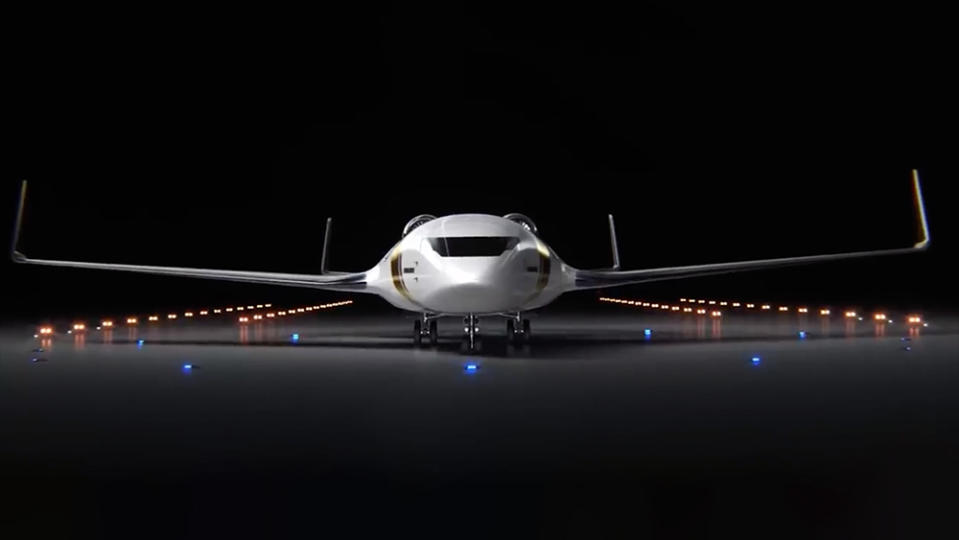Bombardier’s New Blended-Wing ‘EcoJet’ Cuts Emissions by 50%—and It’s Hitting the Skies Soon

The EcoJet project continues to transition from concept to reality after completing the first phase of testing on a small-scale model. Bombardier announced the results of the futuristic-looking business jet last week at EBACE in Geneva.
“We are very pleased to see the highly engaging results yielded so far,” said Stephen McCullough, Bombardier’s Senior Vice President of Engineering and Product Development, in a statement.
More from Robb Report
The Most Popular Business Jet in the U.S. May Not Be What You Think
This New Private Jet Concept Has Interiors That Morph, Bend and Stretch to Maximize Your Comfort
Private Aviation Has Pledged to Reach Zero Carbon Emissions by 2050. Here's How That Can Happen.
McCullough told BJTonline that the EcoJet Project’s purpose “is to develop the people, processes, and techniques to enable us to be ready for the next generation of aircraft.”

The first test model was 7 percent the size of a standard business jet. The next model is roughly twice as large, with a number of subsystems added into the design. It took its initial test flight last year.
“We’ve been working on blended-wing technology for probably about 10 years or more,” McCullough told the website. “There’s a lot of nice things about the smoothness of the wings and fuselage, and the fact that the body provides lift and also reduced drag.”
The blended-wing-body aircraft is designed to reduce emissions by up to 50 percent compared to a standard business jet through a combination of aerodynamics and enhancements in propulsion. The team said its sixth-generation transonic wing modeling capabilities and new aircraft control architecture have made significant contributions to the design.

“We think this wing style will allow us to get there while achieving the same luxury that our customers are used to,” McCullough said. The platform is designed to be “plug and play” for emerging propulsion technologies, he added, including sustainable aviation fuel, hydrogen fuel cells and battery-electric power.
Bombardier has pledged to being carbon-neutral by 2050. “The research project has garnered a high level of interest across the industry, and we are looking forward to mobilizing partners as we continue to define the future of business aviation,” said McCullough.
Best of Robb Report
Sign up for Robb Report's Newsletter. For the latest news, follow us on Facebook, Twitter, and Instagram.

 Yahoo Autos
Yahoo Autos 